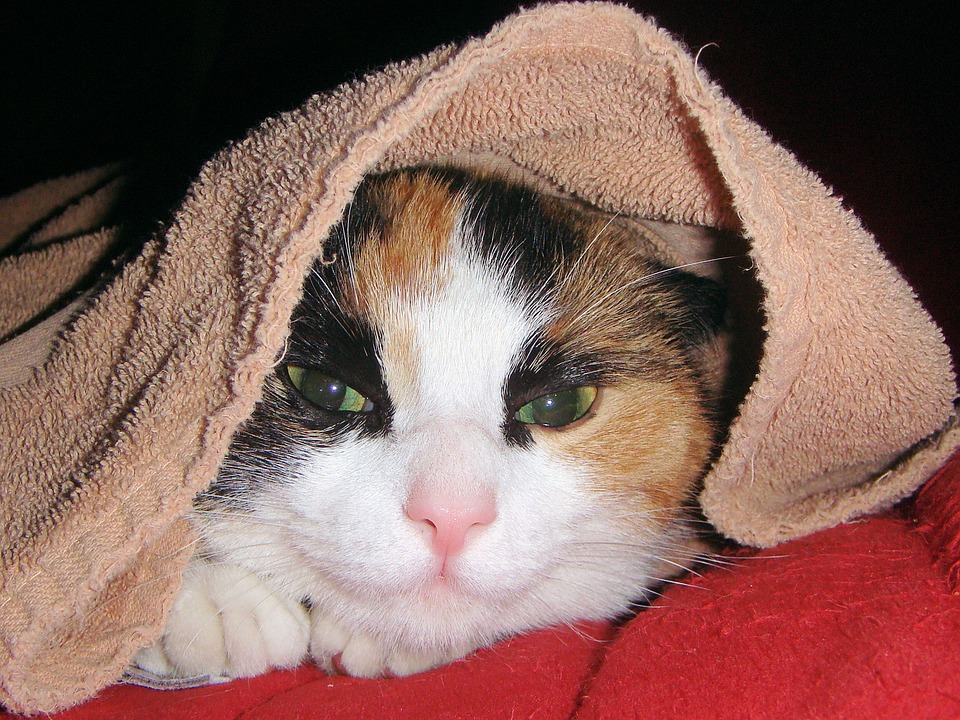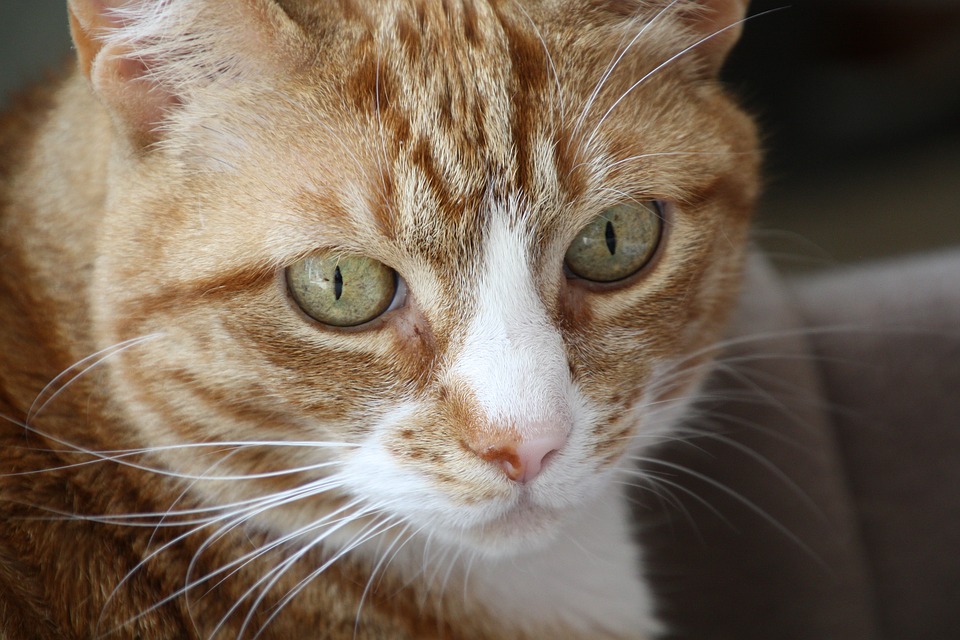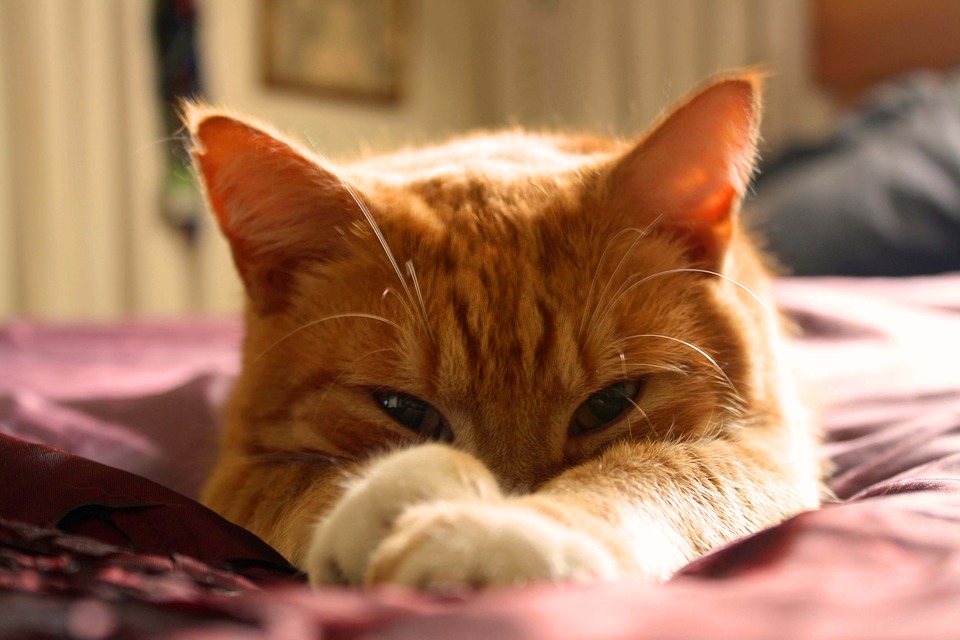
What foods can cats eat? Is human food healthy for them? What foods will kill them, and what should they avoid? Those are the questions that we aim to answer on this page as we tell you all about your cat’s diet and the foods it can eat.
There are quite a lot of toxic foods out there for cats. Some of these will kill your cat outright, others will cause damage to its organs. There are also foods that are just unhealthy; foods that should be avoided. There is a lot of information to digest and we’ll cover as much of it as we can on this page.
Your Cats Diet
A cat typically eats a diet rich in meat and fish. They need plenty of fresh water and they should eat several small meals a day. Treats are okay and there are many acceptable treats out there, some better than others, but these need to be given in moderation as it is very easy for them to overindulge and to become unwell.
As with dogs, cats rarely know what’s good for them. They will happily eat foods that will make them unwell; they will overindulge on treats if given the chance; and they have been known to refuse to eat if tried with a new food that they do not like. They are complicated creatures. They are independent, but fussy and difficult. So, it requires some due diligence on behalf of the owners in order to keep them safe and healthy.
Healthy Diet for Cats
If your cat avoids heavily processed foods, too many human foods and an excess of sugar, then they should be okay. In fact, the reason that so many cat owners are against dry food is that it is processed. Some of it is more processed than others though and there are healthier alternatives.
Your cat’s diet should be heavy on fish and/or meat. It should also have plenty of water, a small number of treats, and whatever else your vet recommends. As for the treats, we personally like to avoid the heavily processed treats that are loved by cats, are cheap, and are popular. They are often labelled as being “cheese” or “meat” flavored, but there isn’t a lot of goodness to them. Or cheese or meat, for that matter.
If you can afford a little extra then get pure fish or meat treats instead. There is a brand known as Thrive that we buy a lot for our cats, often the White Fish version. They take 100% chunks of white fish and dehydrate them. Nothing is added, nothing is taken away. They are expensive, but it’s the only thing we have found that is healthy and natural, but is also loved by our cats. In fact, they go mad for them. They are like kitty crack.
Human Foods Cats Can Eat
There are human foods that are safe for your cat. Many of them in fact. However, just because they are safe does not mean that they should be eaten in high doses. What follows is a small selection of human foods that cats are safe to eat. Just bear in mind that they should not be given in large doses and should not constitute a large portion of their diet.
Nuts Cats Can Eat
Many nuts are dangerous to dogs. But there is little data that suggests they are also dangerous to cats. They are high in fat and can be high in salt as well, so you shouldn’t willingly feed your cat them. But if you find that they have consumed them outside of your control, then they should be okay. There may be some discomfort if they have consumed a lot, but it’s unlikely to warrant a trip to the emergency vet unless they have truly overindulged.
You really should keep nuts away from your cats though. Many foods that are poisonous to dogs are also poisonous to cats and while that doesn’t seem to be the case here, it’s still not worth taking the risk when you consider how much damage nuts like macadamia nuts can do to dogs.
Avocados can cause harm to cats as well. This is technically a fruit, but we’re putting this here just incase.
Fruit Cats Can Eat
As mentioned above, grapes and raisins are a big no-no for cats. They can cause serious harm. As mentioned above, avocados should also be avoided.
The following fruits should be okay, and some others may also be fine, but they should not form a significant part of their diet:
- Blueberries
- Watermelon
- Peaches
- Strawberries
Vegetables Cats Can Eat

Onions and garlic are toxic to cats, as are other vegetables, especially root vegetables. Be very careful when allowing your cats to chow down on vegetables. The following are safe, but do your research on anything else:
- Carrots
- Asparagus
- Celery
- Green bell peppers
- Cucumber
- Broccoli
- Zucchini
Unhealthy Food for Cats
Anything that is highly processed is generally bad for cats. Their diet is mainly protein and they get this from raw meat and fish in the wild. As a result, they are just not used to high amounts of sugar and salt, nor are they used to consuming large amounts of fat or carbs.
Your cat’s diet needs to be closely monitored. It’s also worth noting that they are more sensitive when they are kittens and that some cats may be less able to process certain unhealthy foods due to illness or genetic predispositions.
Anything dairy based is also bad for cats, even if the cats themselves don’t seem to realize it. Some owners allow their cats to lick a little cream or yoghurt every now and then and it doesn’t seem to do any harm in very small doses. But we still wouldn’t recommend it.
Poisonous Foods for Cats
Human kitchens and homes in general can be a minefield for cats. There are many things that their bodies just can’t handle, things that they should avoid at all costs. Some of these have been listed below. We’ve tried to make this list as detailed as possible, but it is by no means complete, so just because something isn’t here doesn’t mean it is safe:
- Alcohol: Even a small amount can be toxic. Avoid any alcohol, including foods cooked in it.
- Chocolate: Toxic to many animals, including cats and dogs.
- Caffeine: Tea, energy drinks, coffee–anything that contains caffeine should not be consumed by cats. It can cause unpleasant symptoms, some of which are serious.
- Dairy: Cats are lactose intolerant. However, many cats will make a conscious effort to drink milk, eat cream and devour other dairy products, so it can be difficult (but essential) to keep them away. If consumed in large enough quantities they may be sick or suffer other digestive distress.
- Grapes and Raisins: Grapes and raisins can cause serious damage to a cat’s kidneys.
- Onions, Garlic: Any member of the onion family can be toxic to cats.
Questions on your Cat’s Diet
Still have some questions about what foods your cat can eat, what foods it can’t eat and what’s best for optimal health? Then take a look at the Q and A below. These questions have been put to us by readers of Can Pets Eat after looking through this Foods Cats Can Eat page. It is forever expanding and we’re always adding new questions and new content. If you have a question to ask and add, then simply get in touch via our Contact Page.
How Long Can Cats Go Without Food?
Cats can survive for up to two weeks without food and are generally very resilient in that area. So, if you’re out of food and your cat might not get any for a few hours or a night, there is no need to worry. You should still look to feed it other foods that it can safely consume, many of which we have mentioned here, but there is no real cause for concern.
The same applies to a cat that is refusing to eat its food. They can be stubborn creatures and may test you if you are trying them with new food. They like to play mind games, making you feel guilty. However, there may be something else at play. So, if you cat is refusing to eat then you should consult a vet. It’s always better to be safe than sorry.
It should also be noted that while a cat can go up to 2 weeks without food, it can not last more than a few hours without water. Cats on a wet food diet get a lot of their water from that food and many cat owners will tell you that their cats just don’t seem to drink much water. However, they still need it to live and you should make sure they always have a ready supply of fresh water.
Can Cats Eat Dog Food?
They probably won’t suffer if they eat a little. We understand that this is probably going to be an issue in homes with both cats and dogs. But you should not willingly feed your cat dog food.
Is Dog Food Bad for Cats?
Yes! it was formulated for dogs, not cats. Your cat can not live off dog food just like your dog can’t live off human food or you can’t live off dog food.
Is Dry Food Bad for Cats?
There are a lot of experts out there who say that cats should not eat dry food. They argue that cats would not have access to anything like it in the wild and that it can cause all kinds of problems. On the other hand, there are experts would argue for the alternative. They say that dry food can make for a healthy addition to a cat’s diet.
We’ve heard it from both sides online, but where vets are concerned the consensus (with our vets anyway) is that there is nothing wrong with dry food. They argue that it can be a healthy and easy way to balance a cat’s diet and make sure they get plenty of nutrition. However, they also say that it should not constitute the entirety of their diet. It’s worth noting that with dry food, cat’s won’t get the water they need from their food. So, fresh water should be made available at all times.
A lack of water can cause serious problems for a cat within hours, so make sure it’s always there.
Is Wet Food Bad for Cats?

No. It provides them with water, it gives them a healthy dose of protein and fats. Providing that the wet food you choose is healthy then they should not have an issue. As we mentioned above, there is a lot of contradictory information out there about what a cat should eat and whether dry food is better than wet.
The best course of action is to consult with your vet. They will advise on the best mix of dry/wet food based on your cat’s breed, age, size and other factors. There are too many variants at play for us to recommend any one particular type of food.
Can Cats Eat Baby Food?
Again, the food is not formulated for them so it should not be eaten for them. Just because your cat starts sniffing the food and tries to take a bite, doesn’t mean it is good for them. They don’t always know what’s best for their diet.
Why Do Cats Throw-up Food?
It can be scary as a new cat owner to see that your cat is vomiting on a regular basis. “Why Does my Cat Vomit All the time?” is a question that vets hear all of the time from first-time owners. The good news is that this is fairly common. There are many harmless reasons why cats throw-up, from a change in diet, to eating too fast, eating too much, having fur-balls, and more.
If they are displaying other symptoms, however, then you should start to worry. You should also take them to see a vet if they are throwing-up everyday. This is more common with outdoor cats as they could be eating something beyond your control that disagrees with them.
Can Cats be Vegetarian?
Cans are predators and they have evolved to be very good at catching, killing, eating and digesting raw meat. There are cat owners and so-called experts that will stand by this truth (and a truth it is) and will use it to dismiss any claims that cats can subsist on a vegetarian diet.
“It’s not natural” “it’s not healthy”. We’re sure you have heard it all before. However, there are a lot of positive studies out there that suggest that this is possible and it is effective. You are changing the cat’s natural diet of course, there is no denying that. But providing it gets the nutrients it needs then it might be okay.
We can’t endorse this, but we can understand the need to answer this question. We’re actually cat owners and vegetarians ourselves and this is something we personally considered. In the end, we ended up feeding our cats a diet rich in fish and supplemented with a little nutrient-rich dry food. It was a compromise that we decided would offer the best for our cats while still not completely destroying our own beliefs (even though we don’t eat fish ourselves).
And that’s key. You shouldn’t go completely against your own beliefs, but at the same time you should not do anything that is likely to harm your cat.
Can Cats be Vegan?
While vegetarian to vegan is a big stretch for humans, there aren’t that many differences for cats. After all, cats don’t really digest dairy all that well. You should avoid giving them cream, milk and cheese, and there isn’t much else to it. As we mentioned above, there are studies out there that suggest a vegan diet for a cat is healthy. But there are also studies to the contrary.
Some argue one way, some argue another. We’re not taking sides on this but we are saying that it seems to be possible to let your cat eat a vegan diet. If you do, however, then you need to make sure you are well informed, you do your research, and you have the right food. You can half-ass a vegan diet as a human and still get by. But try this with your cat and you could cause it serious damage.